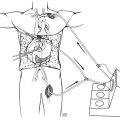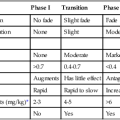When you’re in an addiction treatment center, it’s easy to feel overwhelmed. There’s a lot of healing to do, and it can be hard to know where to start. That’s why setting realistic goals is so important. Goals give your journey a clear path. They help you stay focused and remind you of how far you’ve come.
Realistic goals aren’t about being perfect. They’re about progress. Even small steps forward matter. Whether it’s showing up for a group session or learning to say no to old habits, every goal moves you closer to a better life. With the right mindset and some simple steps, you can build goals that truly support your recovery.
Understand Why Goals Matter in Recovery
Setting realistic goals during addiction recovery isn’t just a “nice idea”; it’s one of the best ways to stay focused and feel hopeful. When you’re going through treatment, each day can feel long and full of challenges. That’s where goals come in. They give you something to work toward and help you feel proud of your progress, one step at a time.
Many addiction treatment centers emphasize goal setting as a core part of recovery, helping you build structure, track your achievements, and stay motivated throughout your journey. Let’s break down why goals really matter in recovery and how they can keep you moving forward.
Goals Give You Direction
Without goals, recovery can feel like wandering in the dark. Goals light the way. They help you know what to do each day and give your time at the treatment center a clear purpose. Even something small like, “I will talk in group today,” can make a big difference.
Small Wins Build Confidence
When you set a goal and reach it; even a tiny one; it feels good. That good feeling isn’t just in your head. It builds confidence. Over time, those small wins remind you that you’re capable, strong, and getting better. This keeps you going even when things get tough.
Goals Help You Stay Focused
Distractions are everywhere, especially when you’re trying to change your life. Goals keep your eyes on the prize. Instead of getting lost in negative thoughts or cravings, you have something positive to focus on; something that brings you closer to the life you want.
They Show How Far You’ve Come
Every time you hit a goal, you’re proving to yourself that change is happening. Looking back at what you’ve achieved can give you hope and push you forward. Recovery is a journey; and goals help you see just how far you’ve already traveled.
Start with Small, Achievable Goals
When it comes to setting realistic goals during addiction treatment, starting small is key. Big goals can feel overwhelming and make you want to give up before you even begin. But small, achievable goals give you steady wins that keep your motivation high.
What Does “Small and Achievable” Mean?
A small goal is something you can do without too much stress or pressure. It’s simple, clear, and fits into your daily routine. For example, instead of saying, “I will never use again,” try, “I will attend one group session today.” Small steps like this are easier to reach and build good habits.
Break It Down Day by Day
Try setting goals for each day or week. Maybe today your goal is to talk to a counselor, and tomorrow it’s to write in your journal for five minutes. Breaking your recovery into manageable pieces makes it feel less scary and more doable.
Why Small Goals Work
Small goals add up fast. Each one you complete builds your confidence and shows that you can keep going. These wins also help you handle setbacks better because you know recovery isn’t about perfection; it’s about progress.
Growing Your Goals Over Time
Once you’re comfortable hitting small goals, you can slowly set bigger ones. For example, after attending sessions daily, you might aim to join a support group outside the center. This gradual approach helps your recovery stay steady and strong.
Starting with small, achievable goals makes your time at the addiction treatment center feel less overwhelming and more successful. It’s all about taking one simple step at a time; and celebrating every win along the way.
Make Your Goals Personal and Meaningful
When setting realistic goals during addiction treatment, making them personal and meaningful is super important. Goals that come from your own feelings and hopes are way more powerful than goals that someone else tells you to set.
Why Personal Goals Matter
Personal goals connect to what really matters to you. Maybe you want to rebuild trust with your family, improve your health, or feel proud of yourself again. When your goals reflect your true desires, you’ll feel more motivated to stick with them; even when things get tough.
Take Time to Reflect
Before writing down your goals, spend some quiet time thinking about what you want your life to look like after treatment. What are the most important changes you want to make? What makes you happy or proud? These answers help you create goals that truly fit your life.
Avoid Copying Others
It’s easy to feel pressured to set the same goals as others in your treatment center. But what works for someone else might not work for you. Your recovery journey is unique, so your goals should be, too. Focus on what feels right for your own growth and healing.
Keep Your Values in Mind
Think about what matters most; whether it’s family, freedom, health, or happiness. When your goals align with your values, they become more meaningful. For example, if family means a lot to you, a goal might be “spend quality time with my kids” or “communicate better with my loved ones.”
Track Progress and Celebrate Wins
Setting realistic goals during addiction treatment is only half the battle; tracking your progress and celebrating wins is just as important. Doing this keeps you motivated and shows you that every step forward counts.
Why Tracking Matters
When you keep track of your goals, you can see exactly how far you’ve come. It’s easy to forget your progress when you’re focused on what’s still ahead. Writing down or marking off each goal helps you stay aware of your successes and gives you proof that you’re improving.
Simple Ways to Track Progress
You don’t need anything fancy. A notebook, calendar, or even your phone can help. Each day, write down what goals you worked on and what you accomplished. Some people like to check off boxes or use apps designed for habit tracking. Find what feels easiest for you.
Celebrate Every Win
No win is too small to celebrate. Did you make it to a group session? Celebrate! Did you manage to say no to a craving? Celebrate! These little victories add up and remind you that recovery is happening step by step.
Use Rewards to Stay Motivated
Rewarding yourself for meeting goals can boost your mood and motivation. It could be something simple, like watching your favorite movie, taking a relaxing walk, or enjoying a special treat. Rewards don’t have to be big; they just have to feel good.
Conclusion
Setting realistic goals helps you stay focused, grow stronger, and feel proud of each step you take. Recovery starts one goal at a time.




